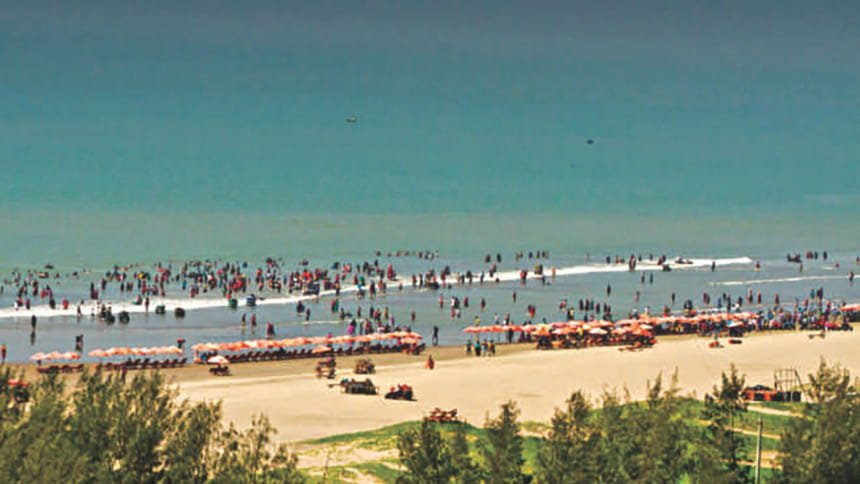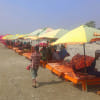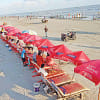Global goals and greener travel

"Who lives sees, but who travels sees more." — Ibn Battuta
The option for discovery and exploration of nature and cultural diversity captivates many of us. As we celebrate World Tourism Day today, we can rehash the World Tourism Organization (UNWTO) Global Code of Ethics for Tourism—to honour common heritage, protect our planet, support the local economy and be an informed and respectful traveller. In this regard, 2017 is special, being the International Year of Sustainable Tourism for Development, as affirmed by the United Nations General Assembly.
Which leads us to the issue of sustainable tourism. Sustainable tourism has been defined as one that "meets the needs of present tourists and host regions while protecting and enhancing opportunity for the future" (UNWTO). The challenge is to find a favourable equilibrium between tourism and conservation. Today, ecotourism receives increasing policy attention as countries around the world are gearing up for realisation of the Sustainable Development Goals (SDGs) adopted by the UN. A commendable example of successful ecotourism is the Galápagos Islands, one of the first UNESCO World Heritage Sites. The Galápagos Marine Reserve was established in 1986 to encompass conservation and protection of the underwater biospheres of the Galapagos.
Unlike India, Bangladesh is comparatively an off-the-beaten-track destination. Tourists who choose to visit the country are likely to have genuine curiosity about the land and its people, which offers an opportunity to promote responsible and sustainable means of tourism in the country. The government, which is expected to incorporate SDGs in policies and legislation, may give particular attention to goals 8, 12 and 14 which are related to tourism industry and can be examined further in the Bangladesh context.
Goal 8 is about enhancing inclusive and sustainable economic growth and productive employment. Decent work for all is also high on the agenda. The direct contribution of tourism on Gross Domestic Product (GDP) of a country includes spending by residents or non-residents on leisure services and government expenditure on service industries linked to visitors, such as parks, museums and other attractions. New investment in ecotourism can involve local beneficiaries including local craftsmen to focus on conservation as well as empowerment. For example, in the Sundarbans, ecotourism sites have been built in an endeavour to encourage locals to become entrepreneurs and generate alternative income sources. Their involvement in such initiatives allows them to realise the importance of conserving the forest as well as living off a conscientious business model. This sector would offer employment opportunities for properly trained and skilled workers, but ecotourism needs to be more affordable for ordinary people rather than being a symbol of a luxurious retreat for the elite.
Goal 12 relates to sustainable consumption and production patterns. Research and innovation is required to promote cleaner, recyclable products—in simple aspects such as jute packaging, organic soaps in resorts, etc. In Bangladesh, there is a lack of awareness about sustainable production and consumption. Stories of the weavers/pottery community featured on labels of souvenir products will foster meaningful purchase that can provide economic opportunities. This means, a visitor who picks up a souvenir made with natural dyes can read about the sustainable cottage industry in short. A name and a story on a label on the product can come with information on the source of the product, and thus one purchase may contribute to the livelihood of an entire community.
Goal 14, with its focus on protecting marine ecosystem, is also important for Bangladesh. Sustainable tourism around ecological sites can aim to trickle down funds to protect our rivers, coastlines and communities whose livelihood depends on a healthy marine ecosystem. An example from Panama/Colombia is quite interesting in this regard. The Lost Beach Sustainable Living project—a part of Buena Onda Water Sports Company—has the objective to nurture a holistic sense of community (on three levels) and set an example of sustainability and cooperation. The communities in question are: owners, investors, partners and staff of the sustainable tourism project (primary), volunteers and people who participate with eco-shares and co-housing units (secondary), and environmental groups and green technology companies which are involved in collaborative efforts (tertiary). Better planning to foster sensible tourism around notable destinations and water resources in Bangladesh and productive linkages with stakeholders of the three layers of community, as explained above, will be crucial.
Partnerships are key to development. Goal 17 of the SDGs encourages partnerships between governments, the private sector and civil society. The private sector, including the Small and Medium Enterprises (SMEs), could explore opportunities for investing in the ecotourism value chain to strengthen sustainability and project the country in an environment-friendly manner. They can target travellers who prefer to be "green consumers," are conscious of social justice concerns, sensitive to local cultures, aware of environmental issues, and wish to leave a positive impact on the places they travel. Green growth in the tourism sector can also help protect our natural resources and local cultures. Our policymakers and government agencies should adopt global best practices and promote innovations. SMEs stand to play a critical role in tapping the ecotourism market that minimises environmental impact of tourism, respects local culture and lifestyles, generates direct financial benefits for conservation and in the process, creates authentic and meaningful experiences to the travellers of today.
Tourism can potentially contribute to all the three aspects of sustainable development—economic, social and environmental—and each of the 17 Sustainable Development Goals. This sector can bolster environmental protection, champion diverse cultural heritage, and reinforce peace in the world.










Comments